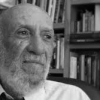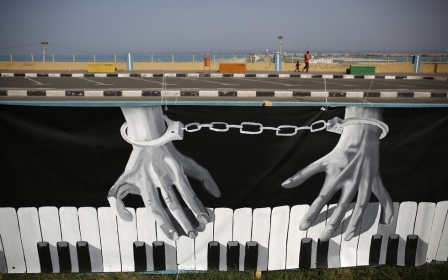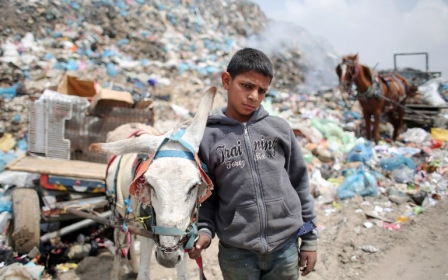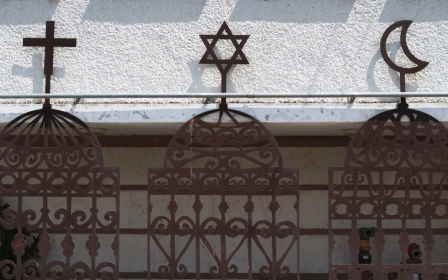The Zionism debate as a shield for Israeli policy

More than 40 years ago, the UN General Assembly adopted the controversial Resolution 3379 by a vote of 72-35 (with 32 abstentions), determining “that Zionism is a form of racism and racial discrimination”.
This resolution was bitterly opposed by Israel and its friends, who called it an assault on the dignity of the Jewish people, and a blatant expression of anti-Semitism that exhibited hurtful insensitivity to the long dark shadow cast by horrific memories of the Holocaust.
The Israeli ambassador to the United Nations, Chaim Herzog, was unsparing in his denunciation: “For us, the Jewish people, this resolution based on hatred, falsehood and arrogance, is devoid of any moral or legal value.”
The American ambassador, the colourful diplomat Daniel Patrick Moynihan, was hardly less severe in a stark assertion in the debate preceding the vote: “The UN is about to make anti-Semitism international law. The [US] does not acknowledge, it will not abide by, it will never acquiesce in this infamous act ... a great evil has been loosed upon the world.”
But waving the red flag of anti-Semitism was a tactical manoeuvre by Israel and the US to falsify the intent of the anti-Zionist resolution. The supporters of the initiative at the UN were never motivated by hatred of Jews, but by the belief that Israel as a state was proceeding in a racist manner in its treatment of the indigenous Palestinian population.
In fact, the focus on Zionism rather than Israel reflected an ongoing commitment by Palestinians and their allies to accept the reality of Israel as a state, while rejecting the policies and practices that were being attributed to the Zionist ideology that prevailed in Israel’s governing process.
Asserting its diplomatic muscle over the years, Israel managed to induce the General Assembly to reverse itself in 1991 by Resolution 46/86, simply revoking the earlier resolution without offering any explanation.
Israel secured this vote by conditioning its participation in the Madrid Peace Conference that same year on a formal repudiation of the 1975 resolution.
In retrospect, the General Assembly made a serious mistake by equating Israel with Zionism. It should be understood that Zionism is a political project devised by Jews in Europe at the end of the 19th century and, while responsible for the world movement that successfully established Israel against great odds, it does not represent the Jewish people as whole.
From its inception, Jews as individuals held wildly divergent views about the wisdom of Zionism in theory and practice as well as its relations with Judaism.
It is a different and much more difficult issue that is raised by allegations that Israel as of 2016 behaves as a racist or apartheid state, especially with respect to its discriminatory administration of the West Bank and Gaza.
To be clear, it is not Zionism that should be evaluated as racist, but Israel as a state subject to international law, including the International Convention on the Elimination of Racial Discrimination (1966) and the International Convention on the Crime of Apartheid (1973).
At this time, complaints about anti-Semitism have taken an entirely different course. Instead of deflecting criticism at the UN with angry claims of institutional bias verging on anti-Semitism, Israel is actually invoking the prestige of the UN to carry on its fight against the BDS campaign.
On 31 May, Israel convened a day-long conference under the wilfully misleading title, “Ambassadors Against BDS - International Summit at the UN.” Invited speakers were restricted to pro-Israeli extremists who deplored BDS as a political initiative and denounced its activist supporters as anti-Semites.
The right-wing Israeli ambassador, convenor of the conference, Dani Danon, minced no words: “BDS is the modern incarnation of anti-Semitism,” spreading an “ideology of hate”.
The programme was unabashedly one-sided, with the conference sponsored by a series of leading Jewish organisations. The audience consisted of 1,500 invited guests who possessed strong anti-BDS credentials and who were encouraged to be militant in their opposition to BDS activities.
The conference call relied on language that helps us grasp the political significance of this extraordinary initiative: “The BDS movement continues to make strides in their campaign to delegitimise the State of Israel. They are gaining increased support on campuses around the world as they promote initiatives on local and national levels calling to divest and boycott the Jewish state.”
Such a statement confirms the reality of BDS as a rapidly strengthening global solidarity movement that aligns itself with the Palestinian national movement, and is effectively mobilising beneath the BDS banner.
It should be clarified that the anti-BDS summit, appearances not withstanding, was not a UN conference. It was an event organised by the Israeli delegation at the UN that was allowed to make use of the UN as a venue.
Calling itself "Ambassadors Against BDS” is deceptive, suggesting some kind of collective diplomatic undertaking by the international community or at least its Western segment. In actuality, several European governments normally supportive of Israel, including Sweden, Ireland, and even the Netherlands, have recently officially indicated that support for BDS is a legitimate political activity, entitled to the protection of law in a democratic state, and should be treated as falling within the right to freedom of expression.
To be sure, Israel and pro-Israeli civil society actors have been pushing their BDS demolition campaign in a variety of venues. Among those most salient have been the successful efforts of the organised Jewish community in Britain to have an academic conference at Southampton University cancelled for two consecutive years, the frantic defamatory assault on Penny Green, the distinguished British criminalist who had been proposed as UN nominee as Special Rapporteur for Human Rights in Occupied Palestine, a travel ban imposed by Israel on Omar Barghouti, the widely admired worldwide leader of BDS, and sundry outrageous efforts throughout the US to have as many state legislatures as possible pass laws that criminalise BDS by associating its advocacy with anti-Semitism.
Above all, this ugly effort to stigmatise BDS represents a shift in the essential battlefield of the Israeli-Palestinian struggle from one of armed struggle to one of symbolic encounters concerning the legitimacy of Israel’s policies and practices. This shift should be welcomed.
The BDS Campaign concentrates on university campuses, churches, and labour unions. To challenge the legality and propriety of its tactics is to attack the most fundamental values of constitutional democracy. BDS-bashing also lends indirect credibility to those who argue that only political violence can achieve justice for the Palestinian people that alone can end their unspeakable ordeal.
This deadly dance between Zionism and the UN has now come full circle. In the 1970s, Zionism was condemned at the UN, and the condemnation was sharply criticised as anti-Semitic.
Now in 2016, Israel relies on its UN membership to empower Zionist forces throughout the world to engage in BDS-bashing. In the end, we should appreciate that neither Zionism nor BDS is racist, and the real focus should be on the behaviour of Israel as a member of the UN obliged to respect international law.
- Richard Falk is an international law and international relations scholar who taught at Princeton University for 40 years. In 2008 he was also appointed by the UN to serve a six-year term as the Special Rapporteur on Palestinian human rights.
The views expressed in this article belong to the author and do not necessarily reflect the editorial policy of Middle East Eye.
Photo: A man stands next to caricatures of Israeli artists against the Palestinian-led Boycott, Divestment and Sanctions (BDS) movement displayed during the Ynet and Yedioth Ahronoth's anti-BDS conference on 28 March, 2016, in Jerusalem (AFP).
Middle East Eye propose une couverture et une analyse indépendantes et incomparables du Moyen-Orient, de l’Afrique du Nord et d’autres régions du monde. Pour en savoir plus sur la reprise de ce contenu et les frais qui s’appliquent, veuillez remplir ce formulaire [en anglais]. Pour en savoir plus sur MEE, cliquez ici [en anglais].





